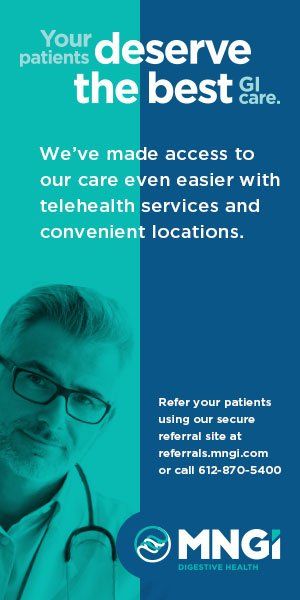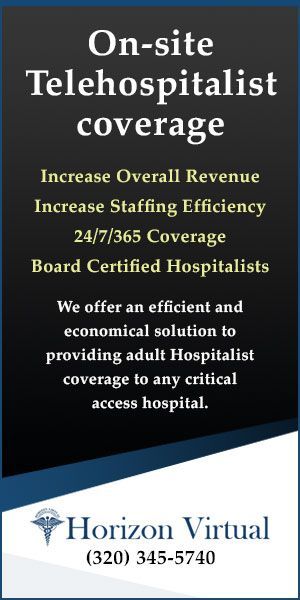Capsules
NorthPoint Opens New $90 Million Campus
NorthPoint Health & Wellness Center recently announced the completion of its 30-month campus expansion project with a ceremony celebrating the $90 million renovation, which was made possible by the investment of Hennepin County. Speakers including NorthPoint and Hennepin County leaders and partners as well as elected officials at the local, state and federal levels shared messages of partnership, gratitude and pride.
“It is an honor to get to deliver on the vision that this community has asked for and has created for itself,” said Hennepin County Board Chair Irene Fernando during her remarks. The ceremony also celebrated a historic leadership transition. NorthPoint CEO Stella Whitney-West spoke about her upcoming retirement and welcomed Kimberly Spates as her successor. “I’m leaving a legacy of leaders and amazing staff here at NorthPoint who will move the mission forward,” said Whitney-West. “I have no doubt that NorthPoint will continue the tradition of honoring our history and creating our future.” Spates has served as NorthPoint’s Chief Operations Officer of Human Services since 2014. This leadership transition honors the history of NorthPoint’s 55-year line of strong leaders committed to community wellness and empowerment. Serving more than 30,000 residents each year, the center provides essential medical, dental, behavioral health and human services. NorthPoint is administered through a partnership between the Hennepin County Board and the NorthPoint Community Board of Directors made up of NorthPoint’s patients and people who live and/or work in the community. After the 30-month campus expansion project, NorthPoint now has:
- Increased access to quality and innovative health and wellness services.
- An expanded campus for clinics and programs.
- More employment and economic development opportunities.
- Greater conservation impact with infiltration gardens (with the support of the Mississippi Watershed Management Organization).
- Dental specialty services
- Food shelf distribution operations
- A child wellness center
In the process of expanding its ability to holistically serve North Minneapolis and surrounding communities, NorthPoint worked with Hennepin County Facility Services, AECOM, JE Dunn, KMS Construction and TRI-Construction to ensure a continuation of services throughout the construction project.
Mayo Opens New Expansion of Mankato Hospital
After two years of construction, Mayo Clinic Health System in Mankato recently celebrated the grand opening of its $155 million hospital expansion. “The expanded and modernized Mankato bed tower is not only adding needed capacity to our Mayo Clinic Health System in Mankato but, importantly, it is also adding new capabilities,” says Gianrico Farrugia, MD, president and CEO, Mayo Clinic. “With these state-of-the-art, flexible care spaces, combined with digitally integrated tools, we are expanding the scope and reach of our staff and enhancing collaboration across our sites, including with Mayo Clinic in Rochester. This digital and physical integration is helping us to blur lines between inpatient and outpatient care into a seamless care experience for patients and their families.” The project includes the addition of three new floors atop an existing two-story building on the Mankato campus that houses the emergency department, Andreas Cancer Center and Specialty Clinic foyer. The new structure features 121 additional hospital beds and numerous other improvements. Staff and patients began moving into the addition in April. “Our Bold. Forward. strategy is to establish Mayo Clinic Health System as a Category of One in community and rural health care nationally by 2030,” says Prathibha Varkey, MBBS, president of Mayo Clinic Health System. “The opening of the re-imagined Mankato hospital tower gets us closer to this goal and aims to provide a compassionate, seamless and integrated digital and physical Mayo experience, improving patient outcomes and fostering healing in its truest sense.” The project includes a new and expanded intensive care unit and progressive care unit; a new medical-surgical Unit; and a new Family Birth Center. Technological advancements include expansion of telehealth capabilities, digital technology and design elements to enhance efficiencies and support innovative care models. “We are excited to announce the opening of a beautiful new facility that not only expands and modernizes our hospital but represents an ongoing commitment to the health and well-being of our community,” says James Hebl, MD, regional vice president, Mayo Clinic Health System in Southwest Minnesota. “The new hospital will ensure timely access to care while keeping patients close to home — whether they need routine medical care, an advanced surgical procedure or emergency care.”
AHA Launches New Telehealth Stroke Care Certification Program
The American Heart Association (AHA) recently launched a new certification program designed to help standardize training and increase skills and competencies for health care providers in telehealth stroke care delivery, as well as help improve stroke outcomes through the integration of telehealth. An estimated 9.4 million Americans ages 20 and older have had a stroke, and stroke accounts for about 1 of every 19 deaths in the United States. Stroke is a leading cause of serious long-term disability, and projections show a 20.5% increase in stroke prevalence by 2030. Significant barriers prevent or slow treatment for many patients with stroke, including long travel times to stroke center hospitals and the lack of availability of stroke specialists who can evaluate the patients and determine if they are a candidate for treatment. Telehealth stroke care, also known as telestroke, can expand access to rural areas and other communities that face barriers to stroke care. Telehealth stroke care uses interactive videoconferencing to provide specialists timely data to assist clinicians at the bedside in stroke-related decision-making for people seeking care at distant facilities that do not have a stroke neurologist available around the clock. The certification is open to licensed medical professionals who complete prerequisite education. The certification process features:
- high-quality, evidence-based online telehealth stroke education that combines research, hands-on experiences and best practices;
- assessment delivery via live remote-proctoring, certification award and renewal via AHA platforms; and
- individual promotional opportunities by display of personalized certificate award and credentials, which are good for three years.
“Timely access to the latest therapies through expanded use of telehealth-enabled stroke care has been shown to greatly improve the quality of care and reduce disability from stroke, especially in areas with fewer neurologists and stroke experts,” said Lee Schwamm, MD, FAHA, associate dean of digital strategy and transformation at Yale School of Medicine. “The AHA’s individual telehealth stroke certification is a way for health care professionals to ensure they are providing the highest quality of care and leveraging this evolving delivery modality to its fullest potential.” The new telehealth individual certification is available through the Association’s Professional Education Hub™.
Blue Cross Releases 2023 Financial Report
Blue Cross and Blue Shield of Minnesota (Blue Cross) recently released a summary of financial results from 2023. It reported $15.3 billion in total revenue and an operating margin of less than 1 percent ($103.7 million). “I am pleased with our financial performance for 2023, as our results underscore our proven capabilities to operate as a responsible and sustainable health organization across increasingly competitive markets,” said Dana Erickson, president and CEO of Blue Cross and Blue Shield of Minnesota. “In a year marked by higher-than-average utilization of health care services, we were still able to advance numerous initiatives tied to our key goals of expanded access and affordability and maintain our overall top market share. Our modest margins allow for the continued reinvestment in infrastructure and capabilities designed to serve all of our members and communities.” Operating under a complex business structure involving multiple entities, the report cites a total of $13.8 billion in medical claim payments, with approximately 90 cents of every premium dollar going directly to cover members’ health care costs. Additionally, the organization paid more than $63 million in taxes, assessments and surcharges. Total member enrollment for the year ended at approximately 2.5 million. Toward its goal of advancing racial and health equity, in 2023 Blue Cross provided $16.5 million in community investments. Some specific community grants and funding included:
- $6 million for communities to advance racial and health equity through increased access to healthy food and efforts to eliminate commercial tobacco use.
- $4.6 million to increase access to health care coverage and culturally informed care; support early childhood care and education; and strengthen community connections to reduce social isolation.
- $5 million in racial and health equity initiatives, including community funding to 89 organizations.
In addition, Blue Cross supported the achievement of many statewide milestones, including expanded eligibility to MNCare to undocumented residents and universal school meals for all students.
UCare Partners with Violet to Advance Health Equity
UCare has recently announced a partnership with Violet, a pioneering cultural competence insights organization. Their work together will foster inclusive health care delivery and improve health outcomes across the state. Violet created the first-ever standardization and infrastructure for inclusive care. Offering data-driven interventions, from benchmarking providers’ cultural competence to personalized educational pathways, their model makes it easier for patients to find the right providers. By 2045, half of all Americans will have at least one or more diverse identities, including race, sexual orientation, gender identity and more. This partnership marks a significant step forward in advancing health equity initiatives within the health care industry. Key tenets of this collaboration include:
- Inclusive care delivery as a learnable skill: By recognizing the nuances of diverse communities and identities, health care providers and participating UCare staff will be able to better address the unique needs of every single patient.
- Educating providers on health disparities and clinical quality best practices: Educational resources and training modules focused on health disparities and best practices for inclusive care delivery will equip providers with the knowledge and tools to foster a more inclusive and responsive health care environment.
- Improving health outcomes through identity-centered care matching. By connecting patients with culturally competent providers, this initiative seeks to reduce disparities in health care access and improve overall health outcomes for underserved communities.
- “We are thrilled to partner with Violet to promote our shared mission of advancing health equity in Minnesota,” said Pleasant Radford Jr., health equity officer at UCare. “Violet’s equity-centered, community-specific courses offer tools for our clinicians and non-clinical staff to learn, ask questions about what works or doesn’t work, for whom and why and identify new ways to provide inclusive care for our members.”
“We are excited to collaborate with UCare,” said Gaurang Choksi, founder & CEO at Violet. “Together, we can make a profound impact on health outcomes and ensure that every individual receives the care they deserve, regardless of their background or circumstances. And, as someone that grew up on Medicaid, partnering with UCare is extra personal and special to me – especially knowing that we’ll enable thousands of families on Medicaid to access inclusive, in-network care.”
Minnesota Attorney General Urges Improved Cyberattack Response
Minnesota Attorney General Keith Ellison, as part of a bipartisan, multistate coalition of 22 attorneys general, recently sent a letter to UnitedHealth Group, urging more meaningful action in response to the cyberattack. Providers, pharmacies and care facilities have reported catastrophic business disruptions. These have included inability to verify coverage or obtain prior authorization and inability to process claims or obtain reimbursements. Patients report delayed or denied access to prescription drugs and difficulty scheduling appointments or procedures. “As attorney general, it is my job to help Minnesotans afford their lives and live with dignity, safety, and respect,” said Attorney General Ellison. “That includes making sure that patients and providers aren’t left holding the bag when a too-big-to-fail health care conglomerate does indeed fail. It is past time for UnitedHealth Group to use its considerable resources to make providers and patients whole after the catastrophic failure of its system.”
Action steps called for in the letter included:
- Enhanced and expanded financial assistance, free of onerous terms, to all affected providers, facilities and pharmacies.
- Ensuring financial assistance is not more advantageous to entities owned by UnitedHealth Group.
- Suspending requirements for prior authorizations, contemporaneous notifications of change of status and other documentation requirements.
- Providing a dedicated help line for providers, facilities, and pharmacies, and state attorneys general.
- Proactively informing providers, facilities, pharmacies and industry groups on how to preserve claims and receive prompt reimbursement.
- Expeditiously resolving the claims backlog and ensure prompt reimbursement of claims.
Two years ago Attorney General Ellison was part of a group suing to block the UnitedHealth acquisition of Change Healthcare, arguing it would put too much market power and data in the hands of one corporation at so many levels of the health care industry. Following a two-week trial in the District of Columbia, the challenge was denied and the merger allowed to proceed. UnitedHealth Group reported $22 billion in profits in 2023. Even with the February cyberattack, in its first quarter UnitedHealth Group reported revenue of $99.8 billion, up $7.9 billion from same period the previous year. In contrast, many hospitals and clinics are operating under tremendous financial strain, relying on Change Healthcare or adjacent vendors to maintain the operations that support their patient care.
MORE STORIES IN THIS ISSUE
cover story one
AI-Powered Olfactory Sensor Technology: The electronic nose in medicine
By Chris Campbell, CEO
cover story two
Colorectal Cancer: An alarming increase among younger adults















